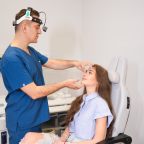
Identifying Warning Signs of Sleep Apnea
Identifying sleep apnea warning signs is crucial for timely treatment. Symptoms include snoring, breathing pauses, awakenings with gasping, daytime sleepiness, headaches, and mood changes.
Recognizing these cues prompts medical evaluation and management to prevent health risks like hypertension and heart disease. Managing caffeine intake is important, as caffeine can worsen sleep apnea by disrupting sleep patterns.
Loud and Persistent Snoring
Loud and persistent snoring is often a primary indicator of sleep apnea. It occurs due to obstructed airways during sleep, causing vibrations of soft tissues in the throat. The intensity and frequency of snoring may vary but typically disrupt sleep patterns, affecting both the individual and their sleeping partner. While not everyone who snores has sleep apnea, it is a significant warning sign, especially when accompanied by other symptoms like gasping or choking sounds during sleep.
Episodes of Breathing Cessation
Episodes of breathing cessation, known as apneas, are characteristic of sleep apnea. These episodes can last from a few seconds to a minute or more and occur repeatedly throughout the night. They result from the collapse or obstruction of the airway, preventing adequate airflow into the lungs. Individuals may not be aware of these pauses, but they often disrupt sleep, leading to fragmented and poor-quality sleep. Observations from a sleeping partner or family member are crucial in identifying these episodes.
Abrupt Awakenings with Gasping or Choking
Abrupt awakenings with gasping or choking are alarming signs associated with sleep apnea. These awakenings occur as the body reacts to the sudden decrease in oxygen levels during apnea episodes. The individual may wake up suddenly, feeling short of breath or panicked. These episodes disrupt sleep continuity and can contribute to feelings of daytime fatigue and sleepiness. Such awakenings are often distressing for both the person experiencing them and their sleeping partner, prompting a need for medical evaluation and intervention.
Daytime Sleepiness and Fatigue
Daytime sleepiness and fatigue are common consequences of sleep apnea due to disrupted sleep patterns and inadequate restorative sleep. Despite spending sufficient time in bed, individuals with untreated sleep apnea may experience excessive daytime sleepiness, struggle to stay awake during activities like driving or working, and may even fall asleep unintentionally. This persistent fatigue affects cognitive function, mood, and overall quality of life, highlighting the need for diagnosis and management to improve daytime functioning and safety.
Morning Headaches and Mood Changes
Morning headaches and mood changes can result from the oxygen deprivation and poor sleep quality associated with sleep apnea. Reduced oxygen levels during apnea episodes can lead to headaches upon waking. Mood changes such as irritability, anxiety, or depression may also occur due to chronic sleep disruption. These symptoms can significantly impact daily life and relationships, underscoring the importance of recognizing and addressing sleep apnea to improve both physical and mental well-being.
Identifying warning signs of sleep apnea is crucial for early diagnosis and treatment. Recognizing symptoms like snoring, breathing pauses, daytime sleepiness, and mood changes allows for prompt medical evaluation. Addressing sleep apnea improves quality of life, reduces health risks, and promotes better overall well-being through effective management strategies.




















